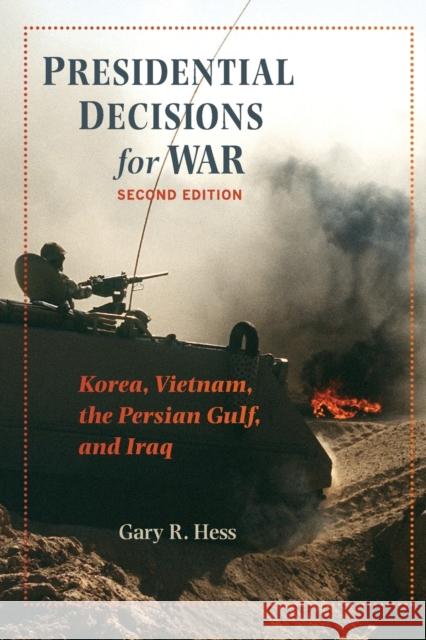Presidential Decisions for War: Korea, Vietnam, the Persian Gulf, and Iraq » książka
Presidential Decisions for War: Korea, Vietnam, the Persian Gulf, and Iraq
ISBN-13: 9780801891243 / Angielski / Miękka / 2009 / 344 str.
Following World War II, Americans expected that the United States would wage another major war against a superpower. Instead, the nation has fought limited wars against much weaker states, such as North Korea, North Vietnam, and Iraq. This revised and updated edition of Presidential Decisions for War analyzes the means by which four presidents have taken the nation to war and assesses the effectiveness of each president's leadership during those conflicts. Gary Hess recreates the unfolding crises in Korea, Vietnam, and Iraq to probe the reasons why Presidents Truman, Johnson, George H. W. Bush, and George W. Bush and their advisors decided in favor of war. He compares the performance of the commanders-in-chief and evaluates how effectively each understood U.S. interests, explored alternatives to war, adhered to constitutional processes, and built congressional, popular, and international support. A new conclusion points out, that unlike the administrations of Truman, Johnson, and the elder Bush, George W. Bush's White House actively sought to change the international order through preemptive war and aggressive democracy building. Fully revised and featuring an examination of how each of the presidents learned from history and juggled the demands on diplomacy, this comparative study of presidential war-making elucidates how effective executive leadership--or its absence--directly affects the outcome of wars.











